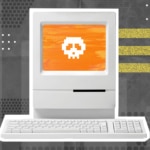Internal IT support teams are often the first place employees turn for help with technical issues, and it’s important for team members to be able to quickly understand problems, identify solutions, and enable the employee to get back to work. Though there are plenty of technologies and organizational practices capable of improving support service teams, team-wide skills are the heart of every great service provider.
In this post, I’ll cover the most important service desk skills customer-facing teams should have and explain how these skills can streamline workflows, reduce ticket costs, and improve overall employee satisfaction (for help desk team members and service desk users alike).
Essential Skills for Excellent Service Desk Customer Service and Why
- First up is the foundation of any skill set relating to customer service: communication.
Effective person-to-person communication involves more than clear writing and speaking. The best IT support service desks are filled with people who can interpret and anticipate their customers’ needs. Frustration and confusion are often a part of support service work. Guiding a customer through an issue with empathy is a great way to develop goodwill and trust with your customer base.
- Another important service desk skill is proactive thinking.
Set action plans to anticipate potentially common customer problems, employ service desk tools designed to increase efficiency and bolster communication between your service teams and customers, and eliminate redundant or ineffective practices and tools wherever you can. IT service support teams already work hard to provide great experiences to your customers, and thinking three steps ahead will help make their work easier and more effective. Another way service desk teams can stay ahead of potential user issues is by creating a self-service option where users can solve simple problems themselves using knowledge base resources. Having an employee self-service portal can help take a significant portion of low-level tickets out of the queue, which gives both the user and service desk technician time back.
- Highly correlated with proactive thinking is the next skill: reducing reaction time.
Employees will only create a ticket when there’s a significant issue, so a rapid response and ultimate resolution should be a top priority. You can support your help desk staff with software tools tailored to address this need. These include techniques like auto-responding to a new ticket so an end user knows their issue is being worked on. Transparency around how the ticket is progressing can allow end users to track progress. Details should include the history of submissions related to the ticket, the status of the ticket, and the name of the staff member assigned to it. From personal experience, I can say knowing the name of the support service team member is a small but important step toward building a working relationship to help streamline especially challenging tickets potentially needing to be escalated.
- Having service desk members embrace role flexibility is a bit of a cheat, as it’s a set of skills and not a single skill, but it’s still important.
This can mean training employees to work different positions and involving them in action planning. Training service desk employees for multiple positions doesn’t just increase team agility and flexibility—it can also empower team members and help keep them engaged with the entire team. Narrow skill sets sometimes lead to a feeling of professional isolation or burnout, which can negatively affect the whole service desk team. Foster a service team culture allowing team members to move between roles and promoting intrateam communication and continuous learning.
- Multitasking is a good skill to have for many disciplines, but it’s especially important for service desk staff.
Many organizations provide several lines of communication to customers, and the customers use them. Service desk employees should have the ability to respond and work with customers over any channel the customer is utilizing. Each customer has specific needs, and their needs often dictate which line of communication they choose. Make sure service desk teams can meet customers where they want to be, such as with a service desk chat option. Additionally, multitasking helps team members handle several customer issues at once. New product releases, updates, and customer onboarding often lead influxes of customer service tickets and are critical times to show your customers how great your service is.
- Understanding customer satisfaction is another skill service desk employees can develop and support with surveys designed for IT support agents.
Multi-channel surveys are a great way to use email, help desk portals, interactive voice response, and text messaging to collect data on satisfaction levels. Ideally, surveys and responses could be collected in the ticketing system. This would allow for more comprehensive analysis of help desk performance by combining details of how the help desk responded and how well those responses met the customers’ needs or expectations.
- Finally, make sure your teams are ready for customer ticket escalation.
Sometimes the frontline team members can’t resolve an issue, or an issue is too complex to be handled on time. Employees should always be ready to push customer issues to a higher level and continue their work elsewhere. From a management standpoint, make sure your teams have the workflows to ease these transitions and reduce escalation frequency. These can include escalation automation tools built to route specific ticket types to the best team members to solve the issues, service-level agreement (SLA) management and alerting tools, and customer service agent assessments.
Does Your Service Desk Team Have What It Needs to Be Successful?
Though I’ve highlighted seven of the most important customer skills I feel support service teams should have right now, it’s important to remember the landscape is always changing. One best practice that never changes is remembering to shift how you approach service delivery in response to customer needs. As new issues appear and team members change, your internal practices also need continual reassessment and tweaking.
A key factor in remaining agile and responsive to end users is having a service desk solution built to help organizations handle their evolving needs and challenges. Check out how
SolarWinds® Service Desk can help teams deliver superior customer support by providing a wide set of features in one tool, such as
automated IT incident management with automation rules to address routine tasks and route tickets to the right service desk agents, an easy-to-use
knowledge base software with integrated artificial intelligence (AI) predictive search, and more to help service desk teams lower their mean time to resolution (MTTR) and reopen rates—a clear sign of a well-performing service desk.







